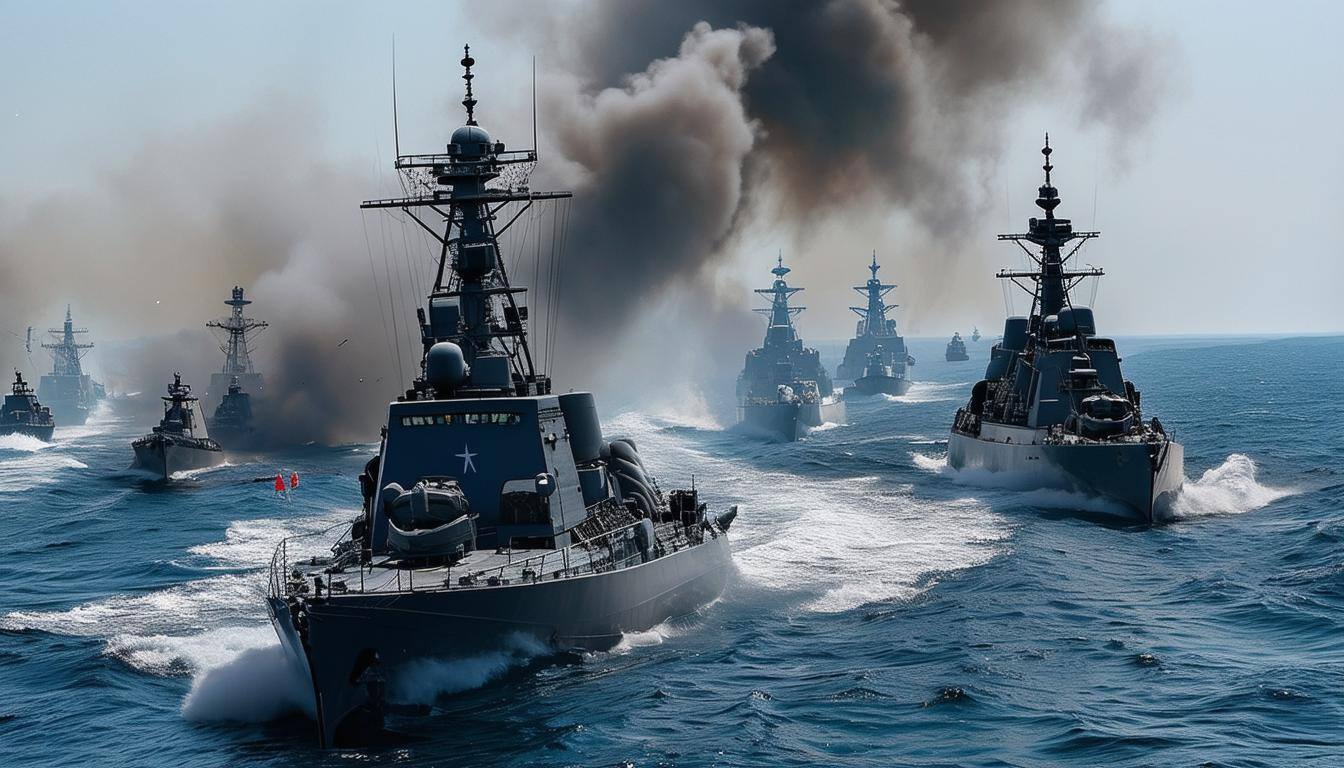The ongoing Russia-Ukraine conflict has primarily been portrayed as a land and air struggle, yet significant developments are also unfolding at sea, particularly in the Black Sea.
This maritime front has seen the Russian Navy suffer severe setbacks, limiting Moscow's naval capabilities and influencing its geopolitical alignments, especially with China.
Historically, geopolitical theories have often divided nations into land and maritime powers, a classification rooted in 19th-century thought. However, this binary view oversimplifies the complex realities of global power dynamics. In the context of the Black Sea, Russia's initial successes in land and air engagements mask its naval defeats, where it has lost control over strategic waters that were once deemed secure following its annexation of Crimea in 2014. This territorial gain allowed Russia to disrupt Ukrainian maritime trade, particularly grain exports crucial for global markets. However, Ukraine, with the support of Romania, Bulgaria, and Turkey, has managed to sustain its grain exports, mitigating the impact of Russian aggression.
Since the start of the conflict in 2022, Ukraine has successfully targeted Russian naval assets, sinking approximately 15 of the prewar fleet of 36 warships. These losses have forced Russia to retreat to the eastern Black Sea and limit operations in previously secure near waters, fundamentally altering the balance of power in the region. Historically, Russia has struggled with naval dominance, facing defeats in past conflicts, including a notable loss to Japan in 1905, which has contributed to its defensive posture in maritime affairs.
The implications of Russia's diminished naval power extend beyond the Black Sea. Faced with its setbacks, Moscow has increasingly turned to China, forging a partnership that positions Russia as a junior ally in maritime security. Joint naval exercises have become more frequent, signifying a strategic alignment that benefits both nations, albeit at Russia's expense. While China strengthens its naval capabilities to project power in global waters, Russia's strategic interests become secondary to Chinese objectives.
This partnership offers Russia limited avenues for power projection, particularly as it seeks to maintain its interests in Africa and the Indian Ocean. However, Russia's role is constrained, as any joint naval endeavors will ultimately prioritize China's broader economic and security interests. Despite potential victories on land in Ukraine, Russia's inability to independently project power at sea underscores its precarious position, limiting its influence in global maritime affairs.
In summary, while the land war in Ukraine garners significant attention, the naval dimensions in the Black Sea reveal a deeper narrative of decline for Russian maritime power and a shift towards dependency on China. This evolving dynamic highlights the intricate interplay between regional conflicts and global power structures, illustrating that control of maritime routes is increasingly vital in contemporary geopolitical strategy.





